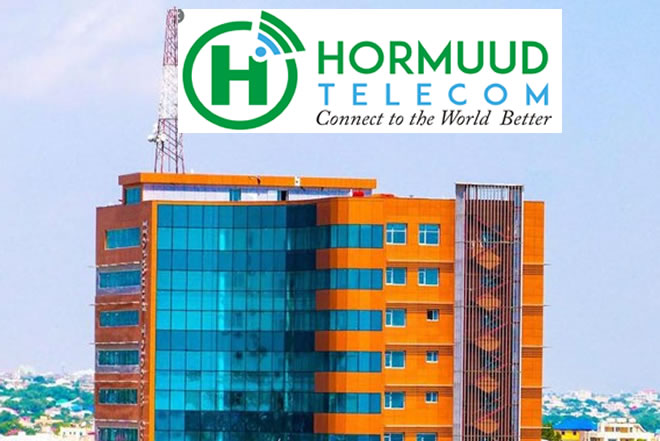Somalia’s stable internet connectivity real boon to online freelancers

Mohamed Hirsi grew up and studied in Mogadishu, finishing his telecommunication engineering degree at one of the universities in Mogadishu two years ago. Hirsi doesn’t currently work as a telecommunication engineer. He isa graphics gesigner and motion creator, freelancing for several local and international companies in need of his newly acquired skill.
Hirsi’s graduation from his telecommunication engineering degree coincided with a critical juncture in the country. Job opportunities are alarmingly getting scarcer, hence his resolve to equip himself with an income-generating skill.
“After my quest for a relevant job opportunity for three consecutive months ended in vain due to the dire job scarcity in the country, I have decided to learn this skill that enabled me to conveniently freelance from home,” he said.
Upon learning the graphic designing skill, Hirsi built his personal website and launched various social media accounts to brand his service, posting about his skill and the services he rendered. Fortunately, he was immediately contacted by potential individual clients and companies.
“I generate more income from my graphic designing skill compared to similar professionals in the field but who work with companies as regular employees. I have added blessings, such as working on other projects during my leisure time, ” he said
Internet accessibility in Somalia
Research shows Somalia’s internet users stood at 1.95 users in January 2021, with the number of internet users in the Horn of Africa nation growing by 20% between 2020 and 2021. Additionally, Internet penetration in the country stood at 12.1% in January 2021.
Somalia is considered as one of the countries in the world with affordable internet, ranking number one in Africa, and seventh worldwide in 2020. According to a survey conducted by the British technology research firm Cable, the country is overtaking many African countries with regard to internet accessibility despite the political and security challenges.
Somalia has the cheapest data in Africa where 1GB of data costs $0.5. with over 70% of Somalis having access to 4G, as per Hormuud Telecom–the leading internet provider in the country. The company said one of their core objectives in expanding internet connectivity in the country was to enable the Somali population to enjoy an affordable, stable and speedy network in order for them to be vibrantly active in the global markets.
“Internet connects our population to the rest of the world, which means that our clients can take advantage of the global opportunities. The country’s professionals can also exploit job opportunities existing in other countries while they remain at their homes and workplaces,” said Yasin Mohamed, Head of Hormuud Telecom’s Communication Department.
He added that Hormuud’s internet is not only affordable but also stable and reliable, encouraging many professionals to explore the world of freelancing, which has been on the rise in the country past few years.
Hormuud’s stable internet connectivity is available both in major urban towns and in far-flung areas in the country. The company is currently working on 4G, with plans to construct vast infrastructure on internet development.
COVID-19 and working from home
Since the global outbreak of the COVID-19 pandemic, the majority of the world companies advised their employees to work virtually from home in a bid to curb the spread of the virus. The trend has not only been smooth but also proved to be efficient. As a result, many companies have considered having some of their workforces work from home permanently.
Somalia is no different. Many local companies were compelled to hire professionals on a remote basis, and thanks to Hormuud’s stable internet connectivity the new trend was successful.
Farah Jama, who manages a Mogadishu-based consultancy firm believes that Somalia’s internet connectivity enabled the country to compete with developed nations during the COVID-19 pandemic, as virtual connectivity became the new norm.
“We work as partners with over 10 agencies stationed across the world. During the COVID-19 pandemic, we proved to be capable of sustaining our work deliverables as our staff worked from home steadily and efficiently.”
Better internet connectivity’s role in mitigating unemployment
With the growing stable internet connectivity in Somalia, many are now discerning the vast opportunities available online, and are opting to learn relevant skills to find freelance work over the internet. This could probably contribute to the efforts to reduce the widespread unemployment rates in the country.
Youth make up more than seventy per cent of Somalia’s estimated 15 million population. However, estimates indicate that nearly 68 per cent of the youth aged 14-29 years are unemployed.
Goobjoog News